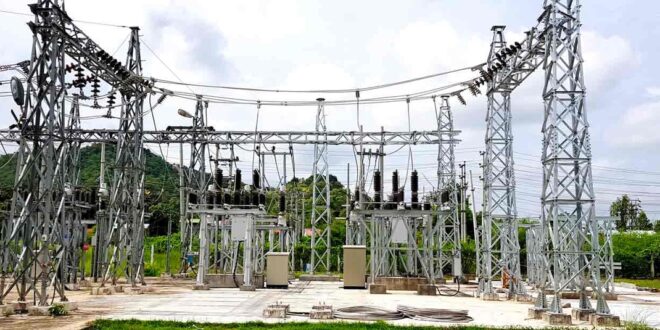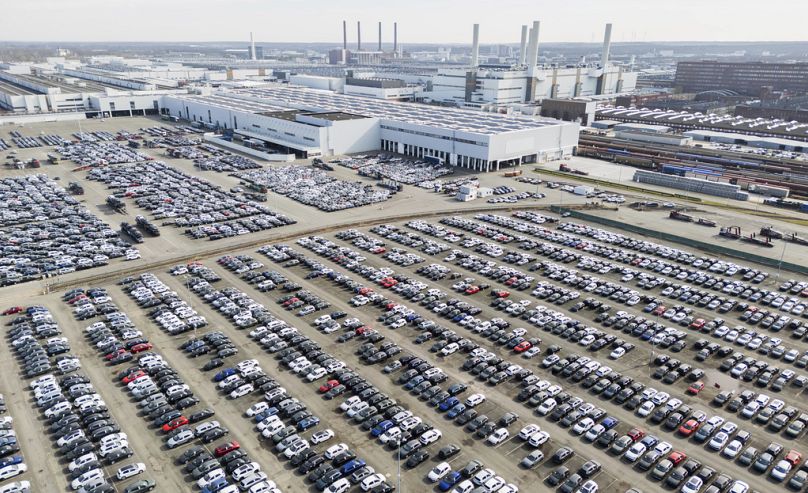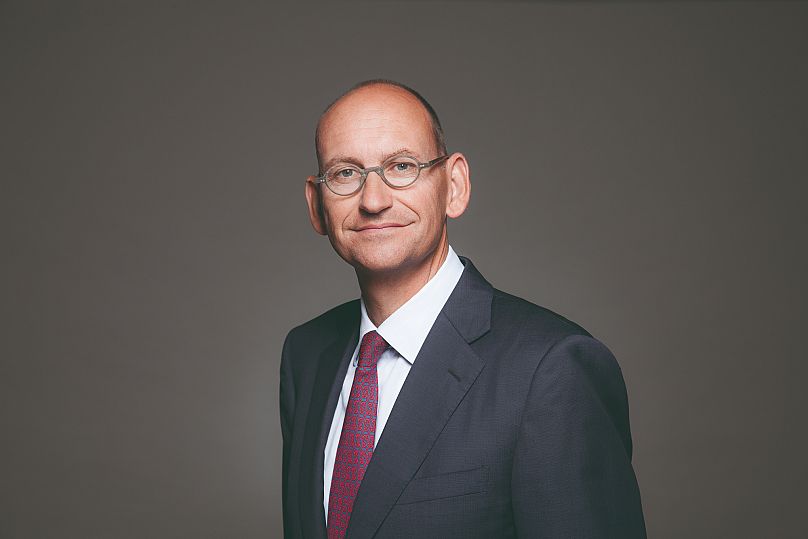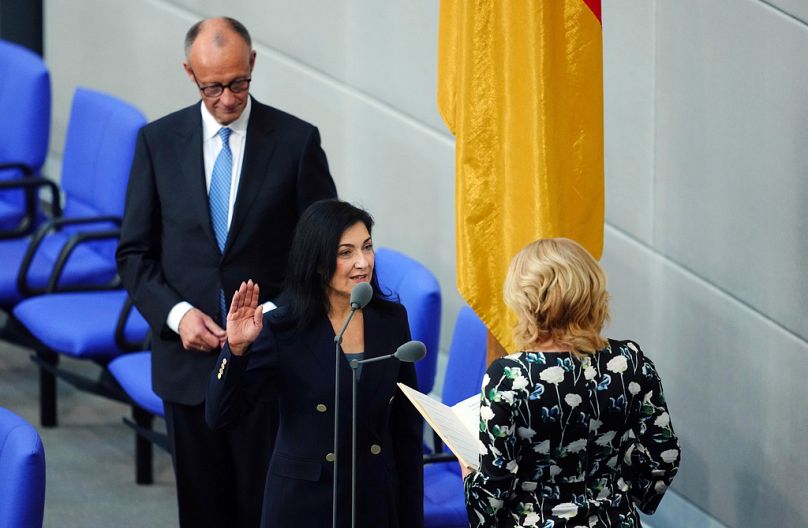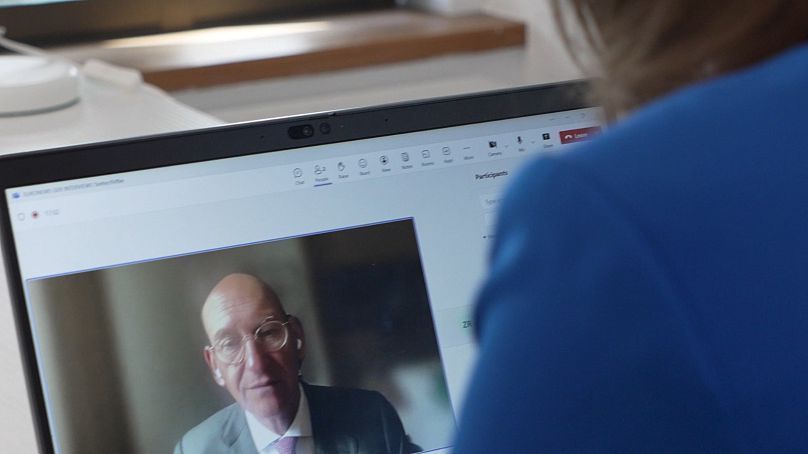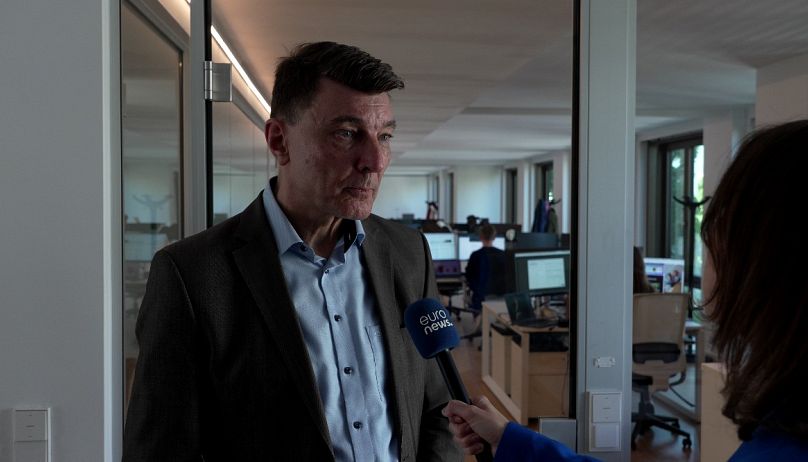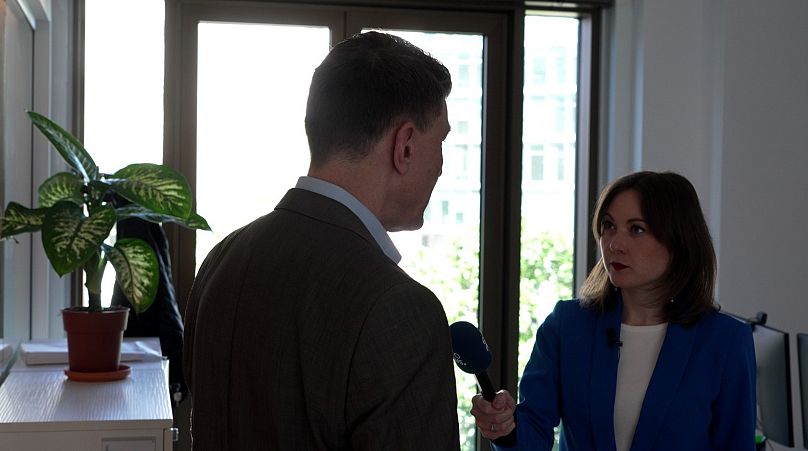Muhamad Yehia.. Cairo
Germany’s new minister of economy wants more natural gas power stations and electricity subsidies. ?Butis that enough to boost the econom y?
Once a world market leader, today, Germany is considered the “sick man of Europe”, as the country remains mired in recession for the third year in a row.
Economic experts predict zero growth for this year, as the figures continue to show a dramatic decline. Last year, almost 200,000 companies shut their doors, according to a study by Creditreform, the highest figure since 2011.
The numbers will continue to plummet in 2025. A new high in insolvencies was reported in April. According to the Leibniz Institute, 1,626 company insolvencies were registered — 21% more than in April 2024 — exceeding even the figures from the 2008 financial crisis.
The high electricity prices in particular are causing problems for industry. Some steel giants now have to temporarily shut down their production on a single day to protect their company from financial damage.
Meanwhile, other companies are relocating their production to Eastern Europe — or even to China. Entire industries are under threat. Foremost among them is the automotive industry: VW, Mercedes and BMW are cutting thousands of jobs.
“Made in Germany” has simply become too expensive.
“We now only have 24 months to save the energy-intensive industries,” well-known German economist Daniel Stelter warned in an interview
with Euronews. The losses suffered by industrial companies to date can no longer be reversed, he said.
‘Katherina Reiche’s policy is a continuation of Habeck’s’
Economics Minister Katherina Reiche (CDU) has correctly recognised Germany’s energy cost problem. She is in favour of energy security and lower electricity prices. This is why she wants to subsidise industrial electricity, for example. However, the EU is threatening not to go along with this.
Reiche also wants new gas-fired power plants as a solution to the problem — but the price of gas is also higher than ever. Does the minister have the right recipe to save the German economy?
Stelter explains that Minister Reiche is taking the right step.
“When the wind isn’t blowing and the sun isn’t shining, we need a secure supply. Now that we have switched off nuclear power plants and we also want to switch off coal, the only thing left is gas-fired power plants,” he said. Only with renewable energies, “it just won’t work.”
However, Reiche’s measures have not yet been enough to revive the economy so that Germany can remain an industrial nation.
“Anyone who believes that renewable energy in combination with gas-fired power plants will lead to cheap electricity is living in a dream world,” Stelter told Euronews.
“Many people only ever look at the costs of solar cells and wind turbines. Only when the wind is blowing and the sun is shining is it favourable. In reality, we have to include the system costs such as storage and batteries – then renewable energies are the most expensive,” he explained.
“Reiche’s policy, as it stands today, is actually the continuation of (former minister) Robert Habeck’s policy,” Stelter added, and is not suitable for “supplying an industrialised country with energy sustainably and cheaply
?Should the nuclear phase-out be cancelled
Instead of gas-fired power plants, nuclear power plants would be a better solution, says Stelter.
“If you ask me personally for my opinion, I would of course not have phased out nuclear power in the same way. And I would now do everything in my power to reverse the nuclear phase-out by reactivating the old nuclear power plants.”
Energy expert Björn Peters takes an even more critical view. He has just launched his new book on the market titled “An End to the Energy Transition.” In it, he argues that the economy should dare to be more ecologically realistic.
“You can’t reduce the price of electricity with gas-fired power plants alone. They are very expensive to operate. Gas is expensive. Then there are the CO2 costs on top. That would mean that in the long term you would have producer prices of between 15 and 20 cents per kilowatt hour,” said Peters, emphasising this is too expensive.
“That would make us uncompetitive.”
Instead, the supply must be expanded quickly.
“This consists of the decommissioning of nuclear power plants, domestic production of natural gas and CCS, which is CO2 capture from coal-fired power plants,” he explained.
“We have enough coal for 200 years. It would be in the interests of national security to continue using coal, but with the appropriate filters.”
Nuclear power plants such as Brokdorf and Emsland could be reactivated by 2026. Six other nuclear power plants could also be recalled, and the process could continue into the 2030s.
The consequences of the previous “bad energy policy should not be subsidised down”, warns Peters. “Of course that won’t work.”
“Politicians are focusing on solving the industrial crisis through subsidies – in other words, less taxes and state subsidies instead. That doesn’t make sense. The principle is that the greater the supply, the better,” Stelters sa
Nevertheless, he is optimistic about his expectations of the new economics minister.
Reiche wants to “seriously take stock” of the economy, he said.
“We have spoken to individual government representatives in the last few days. And they at least seem to be reflecting on the nuclear phase-out.”
 موقع وجه أفريقيا موقع وجه أفريقيا هو موقع مهتم بمتابعة التطورات في القارة الأفريقية
موقع وجه أفريقيا موقع وجه أفريقيا هو موقع مهتم بمتابعة التطورات في القارة الأفريقية
